Now, before I begin explaining the best foods for a healthy heart, I have a question for you. Cardiologists, cardiac surgeons, and other cardiac specialists, such as noninvasive cardiologists, invasive cardiologists, interventional cardiologists, vascular surgeons, electrophysiologists, etc., are some of the highest-paid doctors in the field of medical science or in any other profession. Why is that the case? Aside from the fact that they are doctors and specialists in one of the most complicated and risk-oriented branches of medical study, they are always in very high demand. This is due to the fact that cardiovascular diseases, as reported by the World Health Organization on June 11th, 2021, are the leading cause of death, with an estimated death toll of 17.9 million people globally, of which 85% are due to heart attacks and strokes.
We receive a barrage of advertisements every day telling us how to stop smoking and how to change our lifestyles to lower our risk of developing serious health issues. Our lack of regular exercise and physical activity undermines our efforts to eat healthily and stay physically active. Men and women as young as 30 years old are consequently diagnosed with cardiac complications such as coronary artery disease, arrhythmias, heart valve complications, rheumatic heart disease, angina, congenital heart disease, aortic aneurysms, high blood pressure, heart attack, stroke, and many others.
In order to avoid such medical complications, I have compiled a list of some of the best foods for a healthy heart that you can incorporate into your busy lifestyle as part of a balanced diet. These foods will provide the essential nutrients your body needs to function properly and will also play a crucial role in warding off disease.
Spinach

Spinach is a leafy green vegetable that grows throughout the year. It may be consumed uncooked, steamed, boiled, or cooked. It is a rich source of vital nutrients, including water, carbohydrates, protein, vitamins A, C, and K, magnesium, and iron. It replenishes the body, prevents diabetes, strengthens bones, wards off glaucoma, and lowers the risk of blood clots and deficiency. It increases blood flow to the heart and prevents blood vessels and arteries from contracting, thereby decreasing the risk of embolism, hypertension, and arteriosclerosis.
Beetroot

In terms of its nutritional value, beetroot is comparable to other “superfoods,” such as quinoa and kale. This facilitates a healthy heart. Beets are well-known for their high vitamin content and their potential to aid in weight loss and promote healthy liver function. The advantages include better memory and attention, more robust muscles, improved digestion, and reduced blood pressure.
Fish
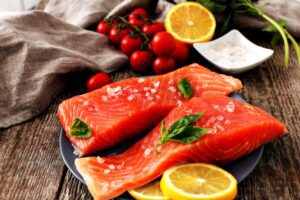
Consuming fish such as Salmon, Sardines, and Tuna offers the body a wealth of vitamin D, iodine, and omega-3 fatty acids to benefit from. This has the potential to reduce inflammation of blood vessels, which is one of the factors that contribute to an increased risk of cardiac arrest and stroke. It is commonly recommended for patients suffering from Alzheimer’s disease and dementia, as well as pregnant women, because it is beneficial to the development of the brain and the eyes. Omega-3 fatty acids reduce the concentration of unhealthy fats in the blood, boost immunity, lower blood pressure, prevent blood clots, lower triglycerides, reduce the risk of thrombosis, prevent chest pain while resting, improve irregular heartbeats, and help fight emphysema.
Sweet Potato

It’s a plant with edible roots and leaves. It’s a great way to get your daily doses of vitamins A, C, and B6, potassium, fiber, calcium, and magnesium. It soothes the skin and helps with digestion while also controlling blood sugar. It helps the body produce more red blood cells, prevents kidney disease, strengthens the immune system, and protects the liver. Vitamin B6 helps maintain healthy blood pressure, fertility, and sleep by regulating the hormones Insulin, Melatonin, Estrogen, Testosterone, and Cortisol. A lack of vitamin B6 has been linked to symptoms of emotional distress, including depression, anxiety, mania, and impulsive behavior.
Avocado

Avocados contain water, mild fat, carbohydrates, and protein. Vitamins B and K are particularly abundant, and vitamins C, E, and potassium are present in moderate amounts. Avocados keep cholesterol in check, lower the risk of cancer, and protect the eyes from macular degeneration. It also shields the eye from the sun’s damaging UV rays. The avocado’s rich and creamy light- green flesh reduces the possibility of developing coronary artery disease. The presence of oleic acid helps keep blood pressure stable and helps people keep the weight they want, while potassium and magnesium improve cardiac muscle health.
Barley

Barley is one of the most important cereal grains cultivated in temperate climates across the world. Water, carbohydrates, protein, and a small amount of fat are its main components. Barley is a valuable food source because it contains many important nutrients like dietary fiber, niacin (vitamin B), and minerals like iron and manganese. It controls blood sugar and reduces cholesterol, two major risk factors for cardiovascular disease. It aids digestion, controls hunger, and promotes weight loss. It may also protect against Type-2 diabetes and the formation of gallstones. It is rich in antioxidants and potentially lowers blood pressure as well.
Tomatoes

Tomatoes contain the antioxidant lycopene, which is responsible for the fruit’s characteristic brilliant red hue. Tomatoes contain, in addition to potassium and folate, vitamins B, K, C, and E. It protects cells from ultraviolet rays, lowers the risk of heart disease and cancer, improves hair health, reduces inflammation, prevents blood clots, and improves bone density, digestion, and skin health. Insoluble fiber from tomatoes promotes healthy bowel movements and prevents colon cancer. Lycopene inhibits cancer cell growth, making it a good treatment for breast, lung, colon, oral, and cervical cancers.
Papaya

When soft, papaya resembles an avocado in texture. It has a wide range of phytochemicals, including carotenes and polyphenols, in its skin, pulp, and seeds. Carotenoids lower blood pressure, reduce inflammation in muscles, and improve the immune system, all of which lessen the possible development of cardiovascular diseases. Polyphenols also have antioxidant properties that make the heart more resilient to conditions like unstable angina and arrhythmia, providing protection against the onset of degenerative diseases like Alzheimer’s, Parkinson’s, cancer, and diabetes. Papaya pulp is high in water, carbohydrates, and vitamin C, with very little fat.
Apple
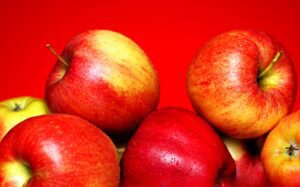
For thousands of years, apples have been extensively cultivated due to their widespread popularity. Apples are an excellent source of many beneficial nutrients, including dietary fiber, vitamin C, antioxidants, and the minerals phosphorus, potassium, and calcium. It improves bone and muscle density and health, controls blood pressure and inflammation, and reduces cholesterol. Additionally, it lowers the likelihood of developing diseases like diabetes, obesity, and cancer. This is also beneficial to the mental health of people who suffer from conditions like depression and anxiety. In addition to assisting with weight loss and asthma treatment, it also helps strengthen the lungs.
![]() First Pregnancy Over 35: Part I
First Pregnancy Over 35: Part I
Broccoli
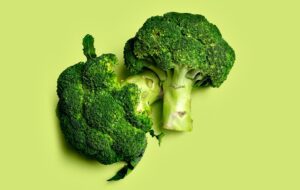
Broccoli is a green plant that can be eaten both cooked and raw and is known for its large flowering head, stalk, and small associated leaves. It is high in fiber and vitamins C and K and low in manganese and vitamin B. Broccoli boosts immunity and helps prevent Metastasis, which is the spread of cancer cells from one location in the body to another. Sulforaphane, which is abundant in broccoli, has been shown to be effective against a wide range of harmful substances, including those that cause inflammation, high blood pressure, and the hardening of the arteries and veins, which can lead to a heart attack or even death.
Blueberries
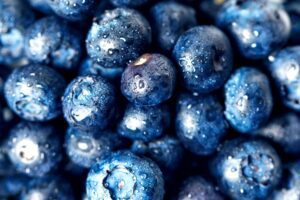
Fiber, vitamin C, vitamin K, manganese, and potassium can all be found in blueberries. Because it contains almost no fat, it is good for your heart, bones, skin, blood pressure, management of diabetes, fighting off cancer, and mental wellness. It helps prevent age-related decline by bolstering the body’s metabolic processes. Blueberries are one of the most potent sources of antioxidants; they can be eaten as a sauce or jam, and their fermented and aged flesh and skin may be converted into wine.
Cloves

Cloves are rich in eugenol, potassium, beta-carotene, and vitamin K. These compounds assist the body in eliminating volatile atoms that can cause cell damage, aging, and disease. Cloves are rich in antioxidants that lower cholesterol and triglyceride levels, thereby reducing the risk of cardiovascular disease, diabetes, and certain forms of cancer. Cloves are beneficial for treating asthma and other breathing disorders due to their eugenol content. It helps the circulatory system regulate core body temperature and metabolic rate. Cloves are great for relieving stress and anxiety because they can stimulate hormones that have a calming effect on the nervous system.
Garlic

Garlic is a white-flowering plant with culinary and medicinal applications. Due to the presence of allicin, they have a pungent, potent odor. Garlic is low in calories and high in nutrients, such as vitamins B6 and C, manganese, and phosphorus. Garlic’s antioxidants may reduce blood pressure and cholesterol and protect older adults from cognitive decline. Garlic consumption significantly mitigates lead toxicity and organ damage-related symptoms. Garlic’s anticoagulant properties may prevent blood from clotting within the arteries, thus reducing the chances of a heart attack.
Grapes

Grapes, which are available in an array of colors, assemble in bunches on vines. They are a rich source of vitamins K, C, and B9, as well as the minerals potassium, sodium, zinc, calcium, iron, and phosphorus. They contain powerful antioxidant polyphenols, which are beneficial for digestion, avoiding constipation, and reducing inflammation. By controlling the dilation and constriction of blood vessels, they aid in the reduction of blood pressure and cholesterol, which prevent the growth of cardiovascular diseases. Resveratrol, a compound found in grape skin, has been shown to have anti-cancer and anti-aging properties and combat diabetes and Alzheimer’s disease.
Almonds
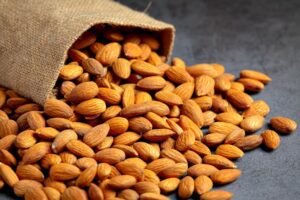
Water, carbohydrates, protein, and fat are the four main components of almonds. Energy, B vitamins (riboflavin and niacin), vitamin E, and minerals (calcium, copper, iron, magnesium, manganese, phosphorus, and zinc) are all provided by this nutrient-dense food. Almonds reduce concentrations in the blood of LDL (bad) cholesterol without affecting HDL (good) cholesterol, which is why they are recommended for reducing the risk of heart disease. Serotonin levels can be improved by eating almonds because they contain unsaturated fats. They help the body’s immune system and work to prevent infections. The protein and calcium found in almonds also aid in the formation of healthy bones and teeth.
Walnuts
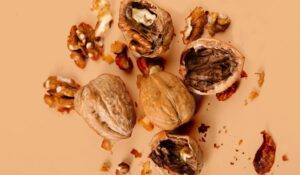
Walnuts are high in protein, fat, and carbohydrates. They are full of nutrients like omega-3 fats, antioxidants, and other compounds that may help protect against cognitive decline, coronary heart disease, cancer, obesity, Type-2 diabetes, and improve reproductive health. Walnuts have a lot of manganese, copper, magnesium, and phosphorus, while small amounts of iron, calcium, zinc, potassium, and selenium are also present. Some of the vitamins in walnuts are B6, folate, and thiamin. They lower LDL cholesterol, maintain pressure in the arteries, and also help prevent heart rhythm disorders and blood clots.
Dark Chocolate

Those who don’t appreciate chocolate’s deliciousness are a rare breed. The antioxidant polyphenols, flavonoids, and catechins in dark chocolate have been shown to lower LDL (bad) cholesterol, making it a healthy choice for heart health. They also help prevent atherosclerosis, lower blood pressure, and increase blood flow, all of which are beneficial to cardiovascular health. Incorporating potassium, phosphorus, zinc, and selenium into your diet may help your body produce calcium in the blood and fight off conditions like atherosclerosis and chest pain. However, it should be noted that dark chocolate is extremely caloric and full of sugar.
Carrots

Carrots are root vegetables that turn orange because of a pigment called beta-carotene. Vitamin C, iron, potassium, calcium, vitamin A, and antioxidants are essential nutrients found in abundance, protecting cells from damage from heart disorders and cancer. Research has shown that eating carrots can reduce blood pressure and reduce the risk of developing blood clots. Beta-carotene improves cardiovascular health by preventing the formation of fat and cholesterol in the arteries, aiding in the management of weight loss, boosting immunity, and normalizing sugar levels in the blood.
In conclusion, a person with a hectic schedule can easily incorporate any number of heart-healthy food choices into their diet. Keep in mind the amount of sugar or fat you’re putting into your body when eating these foods, as consuming too much of anything is bad for you. Maintaining perfect health requires a well-rounded approach. However, the food we select must be easily accessible, readily available, and reasonably priced. Its flavor can be adjusted by cooking it or eating it raw. So, take your pick of the best foods for a healthy heart and start making positive changes today.
Creating content and capturing images requires time and effort. I am extremely appreciative to the designers, photographers, and artists whose images helped me complete this article. Please note the image attributions used in the preceding content.
FEATURE IMAGE
Image by KamranAydinov on Freepik
Free photo top view round dough board beans in bowl garlic
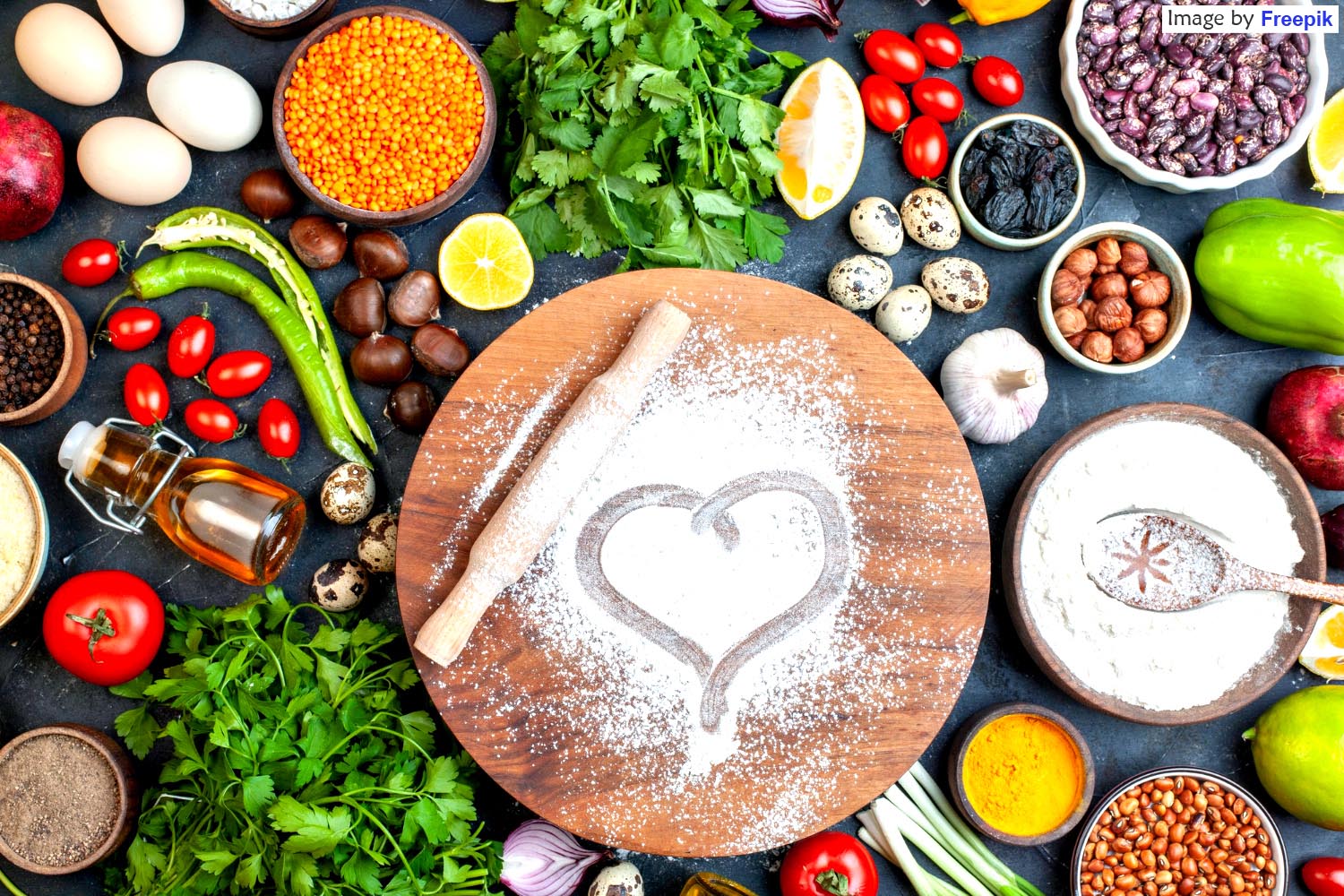





Leave feedback about this